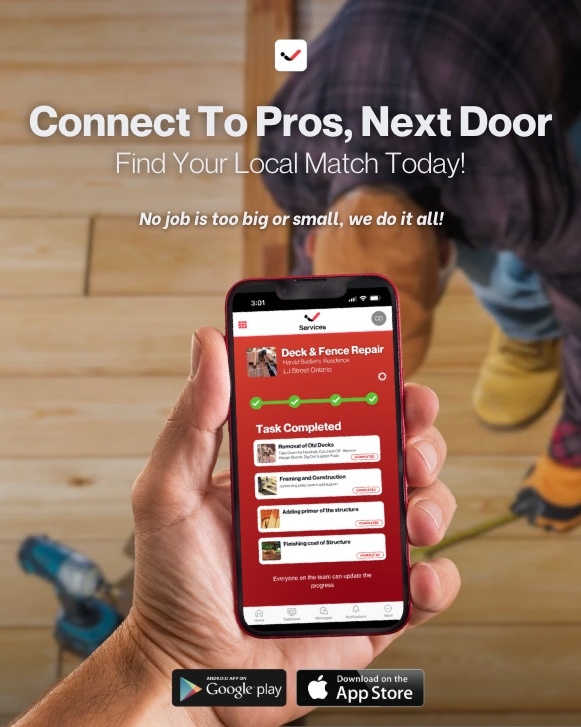The 2025 Homeowner Starter Pack
The 2025 Homeowner Starter Pack

Owning your first home is a huge milestone. But once the keys are in your hand, the real work begins. Many new homeowners are surprised by how much they need to buy, fix, and organize in the first few months. From setting up utilities to learning how to maintain appliances, the list can feel overwhelming.
That’s where the 2025 Homeowner Starter Pack comes in. It's a smart guide for first-time homeowners who want to get settled quickly and avoid costly mistakes. Whether you're buying a house in the suburbs or a condo in the city, these tools, tips, and essentials will help you get started the right way.
1. Essential Documents and Accounts
Start by organizing all your homeownership documents. Keep your mortgage papers, insurance policies, closing documents, and property tax records in a safe but easy-to-access folder. Go digital if possible — scan everything and back it up in the cloud.
Next, set up your utilities. You'll need to get your electricity, water, gas, internet, and garbage collection services running before move-in day. Make sure to shop around for the best deals. Many homeowners don’t realize they can save money by comparing energy and internet providers in their area.
2. Home Security and Smart Technology
Home security systems are more important than ever in 2025. Even a simple video doorbell can deter theft and give you peace of mind. Smart locks, motion sensors, and security cameras are now easy to install and don’t require professional help.
Consider adding smart home devices like thermostats, smoke detectors, and leak sensors. These tools help prevent damage and keep your home energy-efficient. Some devices can even be monitored through your smartphone, so you can check in on your home from anywhere.
3. Tools Every Homeowner Should Own
Every homeowner needs a basic toolkit. You’ll use it more than you think — from hanging shelves to fixing a leaky faucet. Start with a hammer, screwdrivers (both flat and Phillips), a tape measure, pliers, a wrench set, and a cordless drill.
Also, invest in a step ladder, utility knife, level, and stud finder. These are all part of a first-time homeowner must-have list. As you grow into your home, you’ll find more uses for these than you imagined.
4. Home Maintenance Basics
Regular maintenance is what keeps your home from falling apart over time. Make a seasonal checklist. In spring and fall, clean gutters, check the roof, and service the HVAC system. In winter, protect your pipes from freezing and monitor for drafts. In summer, watch for pests and test smoke alarms.
Don’t wait for things to break. Learn how to do small repairs yourself — it saves money and builds confidence. YouTube and how-to blogs are goldmines for new homeowners trying to fix minor problems.
5. Cleaning Supplies That Work
You’ll need more cleaning tools than you used in your old apartment. Start with a vacuum cleaner (consider one made for pet hair if you have animals), mop, broom, dustpan, sponges, microfiber cloths, and gloves. Stock up on all-purpose cleaner, glass cleaner, disinfectant, and bathroom cleaner.
A clean home is a healthy home, and the right tools make the job faster and easier. Use labeled bins or caddies to keep your cleaning gear organized in different parts of the house.
6. Lawn and Garden Equipment
If your home has a yard, basic landscaping tools are a must. These include a lawn mower, rake, hose, watering can, shears, and garden gloves. For those looking to boost curb appeal, planting flowers and trimming hedges can make a big difference.
Even small yards need care, so be realistic about the time and energy you can commit. Many first-time homeowners underestimate the effort yard work takes — don’t be one of them.
7. Furniture and Storage
You don’t need to fill every room right away. Focus on key pieces: a bed, couch, dining table, and a few chairs. Look for furniture that offers built-in storage. Under-bed drawers, storage benches, and bookshelves help keep your new home from feeling cluttered.
Closet organizers, over-the-door hooks, and plastic bins also help you maximize space. Home organization ideas are everywhere online, but the goal is simple — make sure everything has a place.
8. Home Safety and Emergency Kits
Safety is about more than locks and alarms. Every home needs a fire extinguisher, carbon monoxide detector, first aid kit, and flashlight. Keep extra batteries, bottled water, and non-perishable food in an emergency bin. If you live in an area with storms, earthquakes, or power outages, prepare accordingly.
Make sure your family knows the emergency plan. Practice what to do in case of fire or other emergencies. It might feel over the top now, but it can save lives later.
9. Budgeting for Ongoing Costs
Buying a house is just the start. You’ll have ongoing expenses like property taxes, insurance, repairs, and upgrades. Create a monthly home budget and set aside money for home maintenance. This is where many new homeowners get caught off guard.
Try to build an emergency fund with at least three months of expenses. If the furnace breaks or the roof leaks, you’ll be glad you did. Budgeting and financial planning are key parts of responsible homeownership.
10. Know Your Neighborhood
Lastly, get to know the people and places around you. Introduce yourself to neighbors, find local grocery stores, clinics, and hardware shops. Join community groups or online neighborhood forums. These small steps can make you feel more connected and safe.
Being active in your community helps you enjoy your home more and gives you access to advice, local services, and even help during tough times.
The 2025 Homeowner Starter Pack isn’t about buying everything at once. It’s about being prepared and making smart choices. By investing in the right tools, technology, and habits early on, you set yourself up for long-term comfort, safety, and peace of mind.
Being a new homeowner comes with challenges, but it also brings freedom and pride. With the right mindset and starter tools, you can handle whatever comes your way — and enjoy your home to the fullest.

